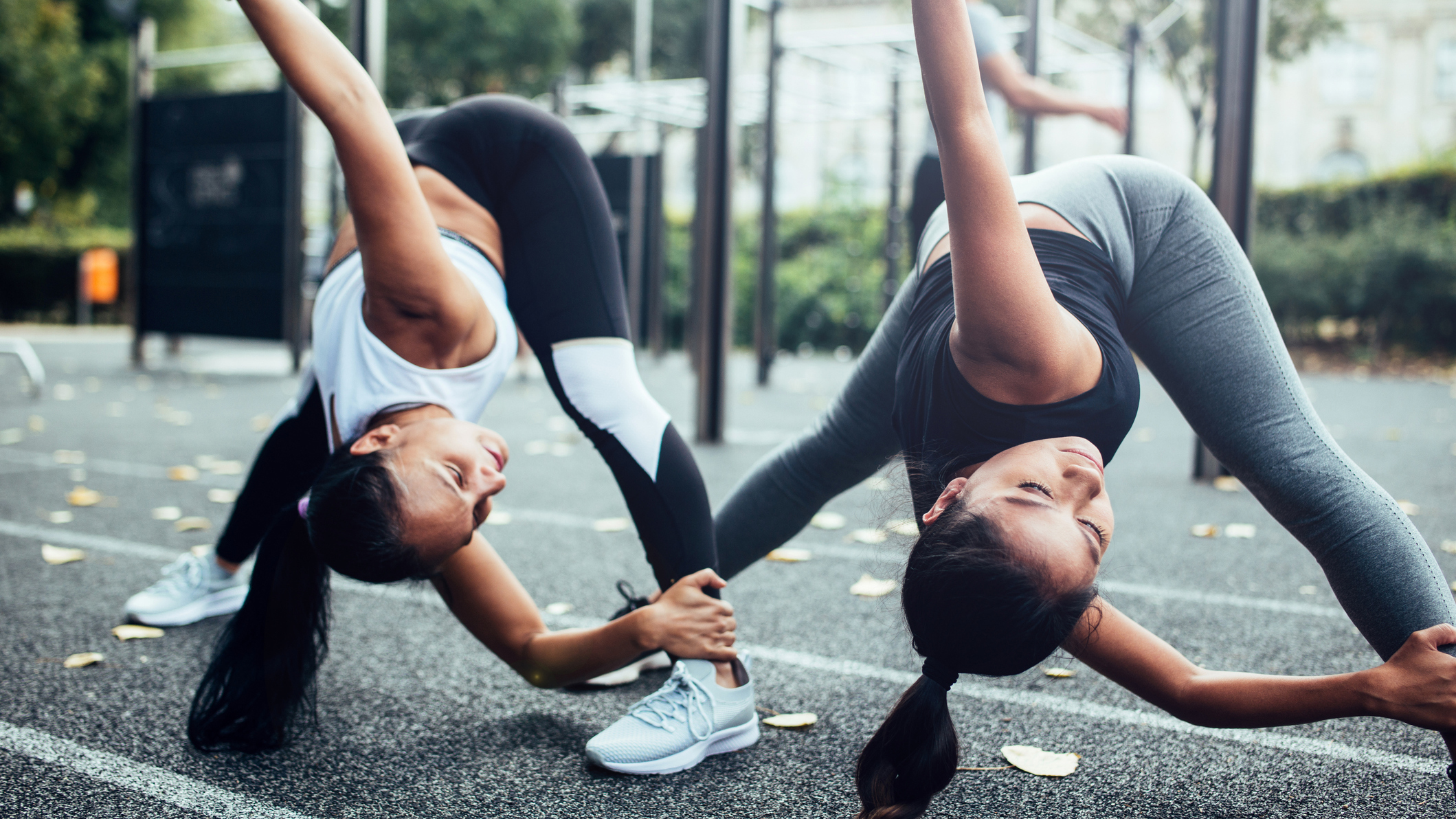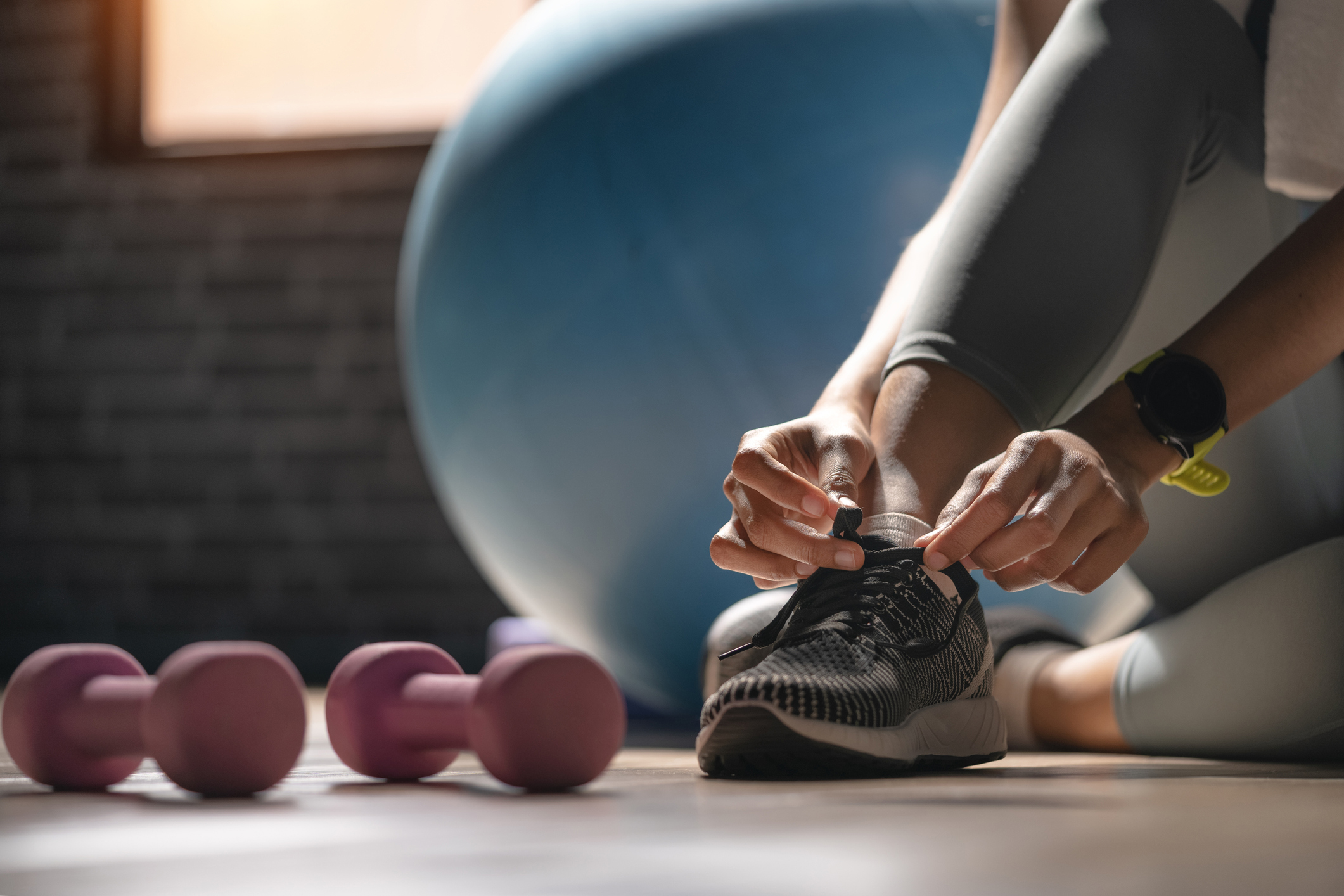Should you eat before or after a workout? We asked the experts
Fuelling your body is essential if you’re working out, but should you eat before or after a workout?


They say that the key to success is preparation, and that’s definitely true when it comes to fitness - but when it comes to fuelling your body, should you eat before or after a workout?
You want to have your kit ready, your playlist sorted and now comes your nutrition. How and when we fuel is an important factor in how well or comfortably we perform. - and many of us still wonder if it's better to have a meal before or after a workout.
- Best dumbbells for women: add these to your home workout kit
“The answer to this very much depends on the individual,” explains co-host of the 3 PTs & a Cup of Tea podcast and director of Lifted Fitness, Laura Hoggins.
While “you need to ensure that your body is fuelled adequately with a balanced diet to perform”, some of us might work better on an empty stomach, Laura explains.
“If it’s an early morning workout, you don’t want to eat too close to that burpee finisher!”
But if you’re planning to do a longer session - even if you're still doing beginner's workouts - your body needs carbs, Laura points out. It’s not just about when or what you consume, it’s also about how well your body can process it.
If you’ve ever gone on a run shortly after having lunch, you’ll know how uncomfortable it can be. That’s because you’ve not given yourself enough time to digest - let alone make fuel available from - what you just ate.
Ultimately, "everyone’s nutritional needs are different, and a lot comes down to personal preference”.

What can you eat before a workout?
Our body’s main source of fuel is fat and carbs. Carbohydrates get stored in the muscles and liver as glycogen, as well as blood sugar, while fat sits in the body as fat tissue.
As with everything, the body likes to use the easiest available form of fuel - and that’s glycogen. Our brains feast off sugar, our muscles will naturally opt for it if given the choice. When we eat before we work out, we’re filling up the engine with glycogen - our bodies run on the carbs we eat. While it might not make a huge difference to short workouts, it might improve your performance over longer-duration activities.
So what should we be fuelling with and should food differ according to what activity we’re doing? Leading Registered Nutritionist and founder of Rhitrition, Rhiannon Lambert, says that our aim should be to match our food to the demands of our day.
“This means eating the right amounts and types of food specific to your individual needs. The standard advice is to eat a meal 2-4 hours before exercising to allow time for it to digest and settle. This meal should contain adequate amounts of carbohydrates to fuel your workout.”
Rhiannon recommends pre-workout meals like porridge (or overnight oats), omelettes, spaghetti or some kind of bean/chicken wrap. Anything that’s got a good mix of carbs and lean proteins.
If you’re training within two hours, however, go for a smaller snack - experimentation is probably your best bet. While someone might thrive on a protein shake and an apple, you might find that a piece of wholemeal toast and nut butter works better.

What should you eat after a workout?
Ever set out for a run or gym session fantasising about food...only to come home feeling distinctly un-hungry? You’re not alone; loads of us lose our appetite during exercise as blood rushes to the muscles and away from the stomach. But that doesn’t mean that you should go for too long before re-fuelling; the longer you put off refuelling, the more nauseous, lightheaded and weak you might begin to feel.
“Replenishing the depleted glycogen used during exercise is important and protein is a must for after weight training; it helps to repair the muscle fibres that worked hard during that last set of bicep curls,” Laura stresses.
But as with everything, the best re-fuel policy is to listen to your body and find out what works best for you.
“Everyone is different in what they like to eat, what their appetite is like and what sits comfortably in their stomach in the hours after exercise,” Rhiannon explains.
Once you’re ready to eat, she recommends feasting on foods rich in quality carbohydrates to replenish the body’s glycogen stores, alongside some lean protein for muscle repair and planets of fluids (check out our list of high protein lunch ideas).
It might sound odd, but Rhiannon says that one food that ticks all the recovery boxes is dairy - so having a quick smoothie, flavoured milk or fruit yoghurt after a workout might be ideal. If you’re dairy-free, try a nut-based alternative (chucking in a handful of spinach and/or oats if making a smoothie to boost the carb profile).
There’s no one “right” way to fuel. Some people can run 10K on an empty stomach while others might struggle to get to the end of the road. In the same vein, not everyone can stomach eating straight away after working out.
The verdict: eat before or after a workout?
Your best option is to experiment; try different pre-workout meals before exercising and give fasted cardio a go. Give yourself a two hour window to eat before exercising and then re-fuel within a two hour period after finishing. If that doesn’t feel good, move the boundaries a little.
Miranda is a fitness, wellness and sustainability journalist with almost a decade’s worth of experience writing and editing articles on everything from ultramarathon training to sports hypnosis. A qualified level 3 PT and three-time marathoner, you’ll probably find her clocking up the miles on the Regent’s Canal, racing around town on her Tokyo Bike in the pursuit of the perfect vegan croissant, or trying out the latest gym class.
